
In the context of globalization and deep international integration, attracting and retaining talent, especially in the fields of science , technology and innovation, is an important task for Vietnam.
The tendency of high-quality human resources to move abroad to seek more favorable research and working environments, leading to the phenomenon of "brain drain", has raised many problems.
According to a 2023 statistic, it is estimated that 70-80% of Vietnamese students studying abroad do not return home after graduation, but choose to stay and work in countries such as Korea, Japan, Australia, the United States, etc.
In addition, according to statistics from the Ministry of Education and Training , in the period 2013-2022, 11,657 people were sent to study abroad with the state budget. However, by the end of 2022, about 4,471 of these people had not returned to work in the country.
Faced with this situation, Resolution 57-NQ/TW of the Politburo on breakthroughs in science, technology, innovation and national digital transformation clearly identified ensuring high-quality human resources as one of the key tasks.
One of the eight breakthrough tasks and solutions emphasized by General Secretary To Lam at the National Conference on breakthroughs in science, technology, innovation and national digital transformation is to quickly develop high-quality human resources; issue a mechanism to attract talent, including Vietnamese intellectuals abroad and international experts.
General Secretary To Lam has requested a specific plan for building high-quality human resources, especially science and technology talents, with special attention paid to Vietnamese experts in the overseas Vietnamese community, who understand Vietnamese culture, have grown up in developed countries, are knowledgeable in expertise and management, and have extensive international connections.

In the context of globalization and the 4.0 industrial revolution taking place strongly, Prof. Dr. Nguyen Thanh Thuy, Chairman of the Vietnam Information Technology Association, said: "Vietnam is facing a shortage of highly qualified human resources, especially in fields such as artificial intelligence (AI), cyber security and big data."
Professor Thuy also gave data: "According to surveys and statistics, there is an imbalance between the training program and the practical needs of the labor market, only about 30% of IT graduates meet the requirements of businesses."
"Another problem is the phenomenon of 'brain drain' when many talented people choose to work abroad due to the difference in income and working conditions," Professor Thuy expressed concern.
He stressed that to overcome this problem, Vietnam needs to invest more in education and research, and create a more attractive working environment.
“To retain and attract talent, it is necessary to apply preferential policies such as reducing personal income tax for IT experts, while attracting overseas Vietnamese and international talent with an attractive working environment,” said Professor Thuy.
He believes that building a startup and innovation ecosystem is the key factor to retaining talent.

"It is necessary to create conditions for young people to participate in practical projects, encourage the spirit of entrepreneurship and organize many playgrounds such as Hackathons or programming competitions so that they have the opportunity to practice their skills," Professor Thuy affirmed.
Sharing the same view, according to Mr. Hoang Khac Hieu, Head of Development Department 2, Government Solution Center, Viettel Enterprise Solutions Corporation (Viettel Solution), commented: "Looking at the general picture of Vietnam's IT industry today, we have enough manpower to meet basic needs but lack high-quality human resources for tasks requiring research and innovation."
According to Mr. Hieu, although the number of students graduating in this field every year is still very large, only a small portion can take on key positions. Meanwhile, the rate of people changing majors is quite high due to rapid changes in technology, making it impossible for many individuals to adapt.
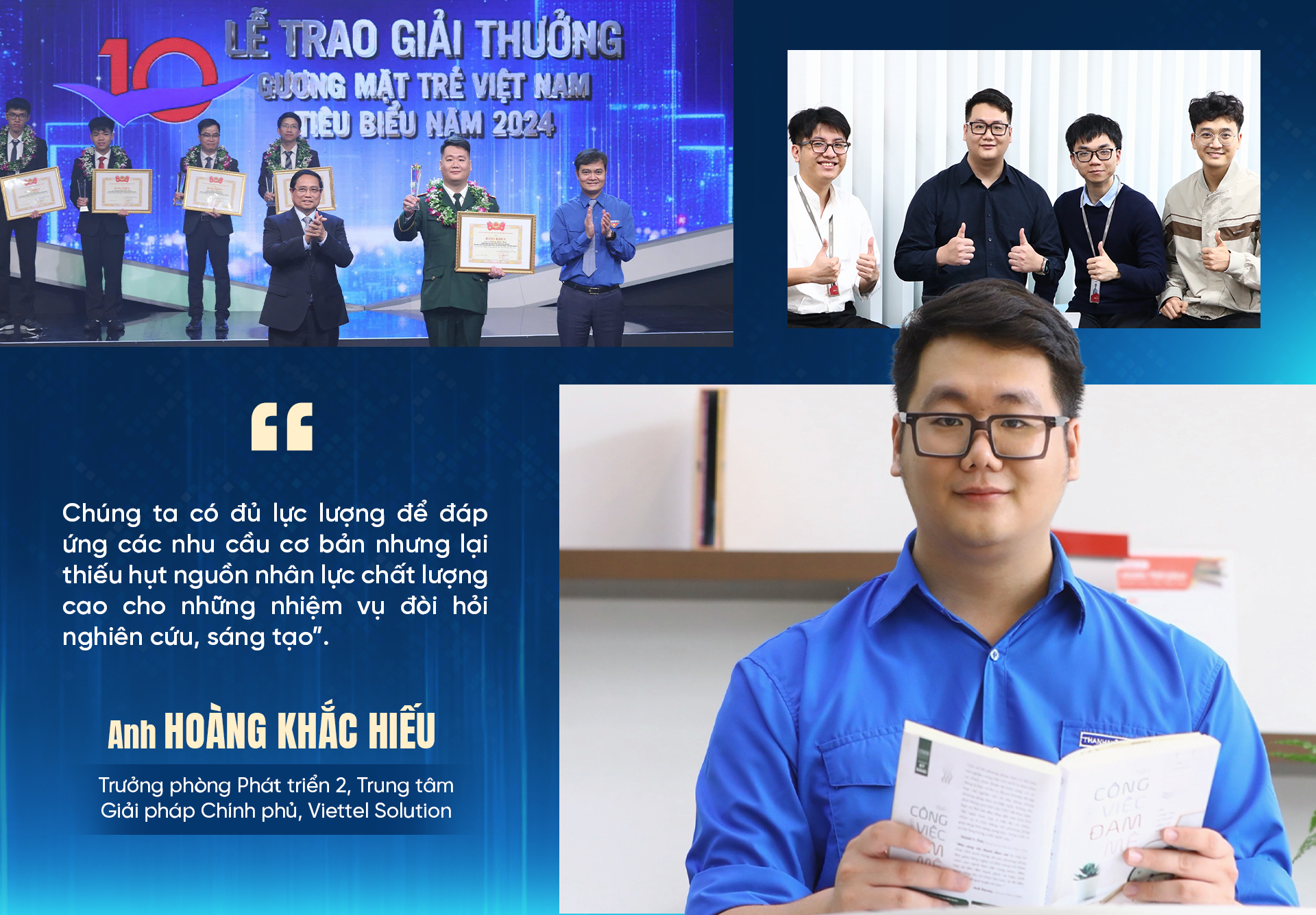

Born and raised in a poor rural area in the Central region, Dr. Nguyen Viet Huong has a desire to contribute to his homeland.
As one of the few nano-thin film researchers in Vietnam, he owns an international patent, 43 scientific articles, of which 35 are in the Q1 category.
Although he had the opportunity to work in Europe, in 2018, he decided to return to Vietnam, fulfilling his father's advice: "Do something for the homeland".
Currently, Dr. Nguyen Viet Huong is the Deputy Dean of the Faculty of Materials Science and Engineering at Phenikaa University. Recently, he was awarded the "Outstanding Young Vietnamese Face" award in 2024.
Recounting the reason for his decision to return home, he shared: "Although science has no borders, my efforts and attempts, if put in the right place, will bring much greater value. Vietnam will need me more than in over-developed places like France."
Also returning home with his suitcase, Dr. Pham Huy Hieu (born in 1992) graduated with a PhD in Computer Science with honors from the Institute for Research in Computer Science of Toulouse (IRIT), France.
After turning down many job opportunities in developed countries, he decided to return to Vietnam and join Vingroup Big Data Research Institute (VinBigData).
Sharing the reason why he decided to “pack up and return home”, Dr. Hieu said: “If I return to the country when everything is “perfect”, my contribution will no longer have much meaning. In a land where there is nothing, when I return, I will create and play the role of “pioneer” of new research directions.”
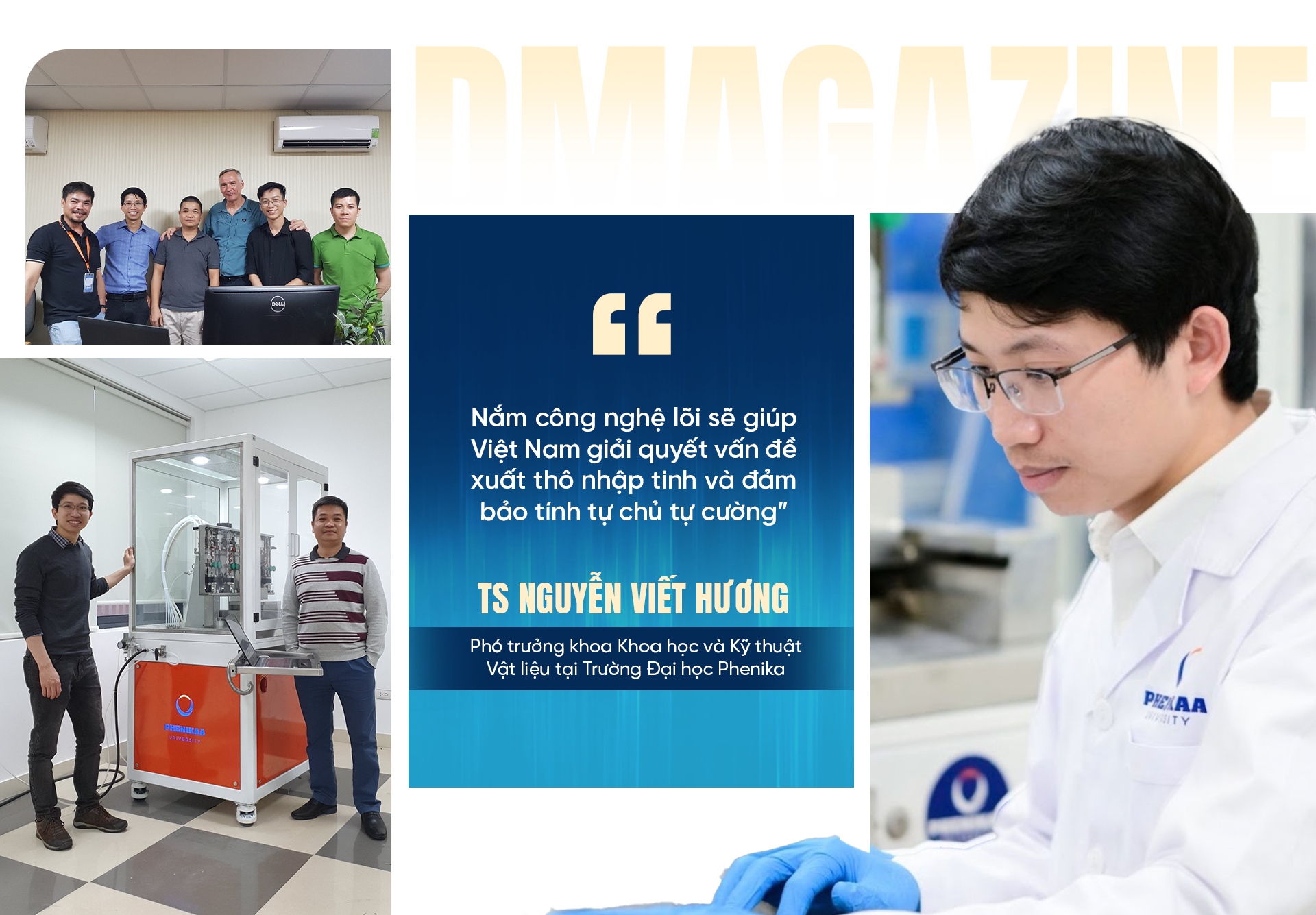
“Science has no borders, but scientists all have their own homeland. There are problems and issues that are national in nature and only Vietnamese people can solve them.
Typically, in the field of smart healthcare that I am pursuing, there are many problems with local contexts that do not exist anywhere else,” Dr. Hieu affirmed.
The core technology problem is one of the reasons Dr. Huong believes that it is necessary to have a team of high-quality personnel return.
Dr. Huong commented: "The most important thing in developing science and technology is to master the core technology, which here is the manufacturing technology aspect. In the field of materials technology, mastering manufacturing technology can only hope for breakthroughs and application development."
He also gave a specific example: In high-tech products like smartphones, R&D researchers account for 60-70% of total profits on each product.
Meanwhile, countries that do not master core technology often only participate in the production process, which has low profit margins and large environmental impacts.
"Mastering core technology will help Vietnam solve the problem of exporting raw materials and importing refined products and ensure self-reliance, especially in the context of a volatile world," said Dr. Huong.
Dr. Huong affirmed: "To avoid the situation of "exporting raw materials and importing refined materials" and promote sustainable development, there needs to be a young generation committed to the path of science and technology."

If in the past, excellent international students often chose to stay abroad to work, now a new generation has chosen a different path - returning home to start businesses and develop international projects.
Nguyen Hoang Truong Giang, Trieu Vu Duy and To Hien Minh are three young people who studied and worked at international scientific centers before deciding to return to Vietnam.
They co-founded NYB.AI, a startup that applies artificial intelligence (AI) in pharmaceutical research and development.
After two years, NYB.AI launched the DTIGN AI model, which scans and analyzes billions of compounds to find potential drugs. This model has been patented in Singapore and is in the process of global protection. With these achievements, NYB.AI was highly appreciated and introduced at the GTC 2025 conference organized by NVIDIA in the US.
Nguyen Hoang Truong Giang (26 years old, CEO of NYB.AI) studied abroad at Nanyang Technological University (NTU) in Singapore, carrying with him a great ambition to apply AI to pharmaceutical research and development.
During his years studying abroad and working with many international friends, Giang realized that young Vietnamese people are not inferior. They are smart, eager to learn and always ready to innovate – an important quality in the AI era.
“But what they lack is not capacity, but an opportunity to solve big problems,” Giang shared.
That's why the young man decided to return to his homeland.
"I want to work with young compatriots to create real value for society, so that AI is not just a distant technology, but also a tool to help Vietnamese people reach far," the 9X shared.
As someone who returned home to find Vietnamese AI "overseas" teammates, Giang believes that the factor that makes young people consider returning home is not just the issue of income or benefits, but also the problem that is attractive enough and valuable enough to be solved in the homeland.
"If the problem is good enough, challenging enough and brings great value, not only talent but also investors will flock to it," Giang said.
Therefore, Giang's startup has attracted many young talents, working together to solve big problems in two fields with great potential to create breakthroughs: Artificial Intelligence and biotechnology.
“For me, everything I do has value, the value depends on the problem I solve. If I can solve big problems, the reward will also be big,” Giang shared.
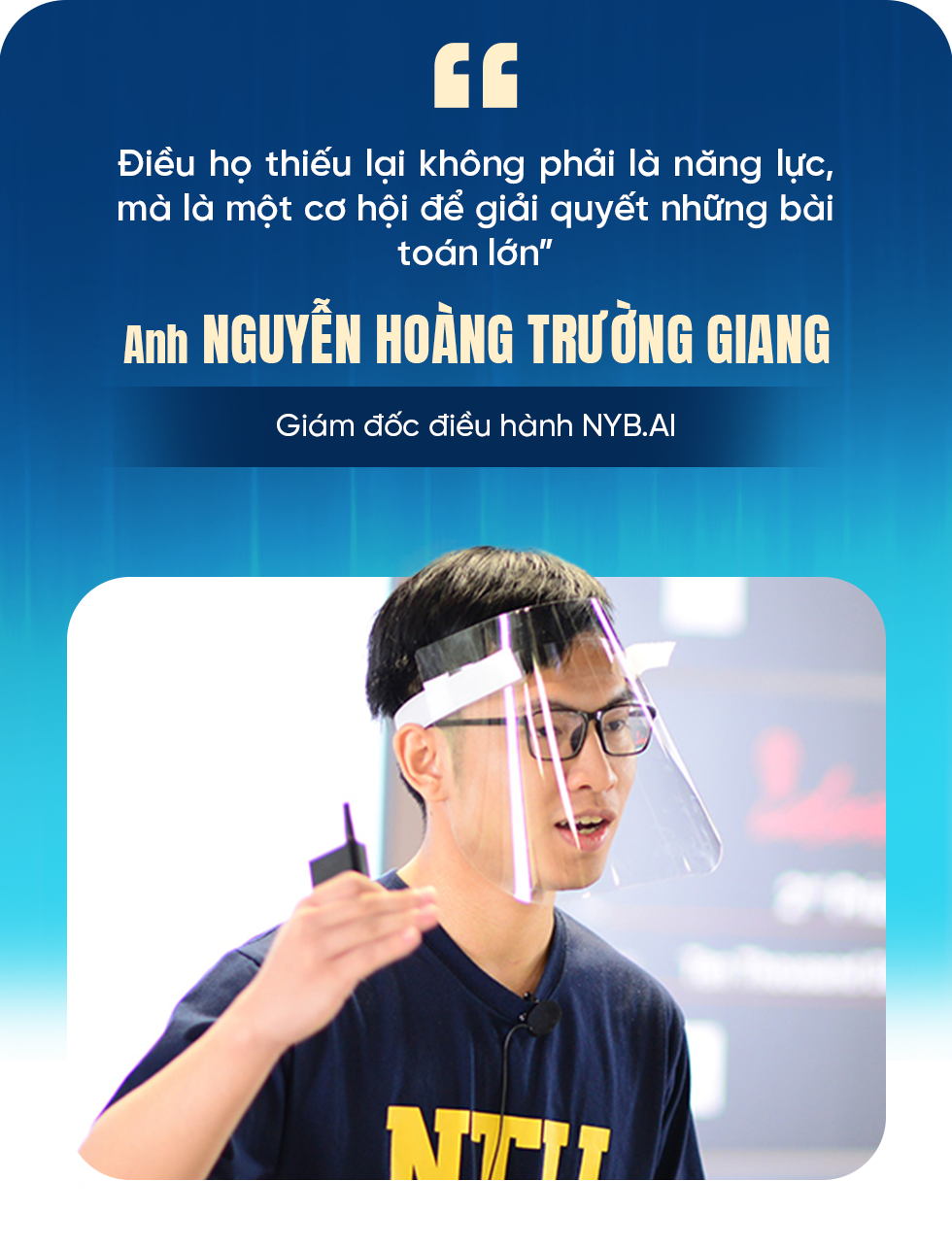
Having received a PhD from Harvard and spent 5 years studying and working in the US, Mr. Pham Thanh Tung (born in 1992, Hanoi) and his wife, also a Harvard PhD, chose to return to contribute to their homeland.
From his perspective, Dr. Tung believes that the problem of retaining talented people cannot be solved by income alone.
For Dr. Tung, the most difficult problems often cannot be solved by money or benefits alone. Because sometimes they come from the deep need for conformity and stability.
When you are single or a couple, moving between countries is a personal choice. But when you have children, it becomes a family matter, including finding the right school environment for your children, considering living conditions, health and long-term stability.
“I realize that for many families, returning is not difficult. But staying long-term is the real challenge.
The reason does not necessarily come from work or treatment, but mostly from factors surrounding family life. For example, the problem of air pollution, typically in Hanoi or choosing a school for children," Dr. Tung analyzed.
These are the reasons why many families, even though they want to, still have to return abroad after a few years of returning to Vietnam.
And this is a problem that cannot be solved with money. It requires preparation in advance, flexibility when returning, and sometimes a suitable support ecosystem to retain those who truly want to stay.
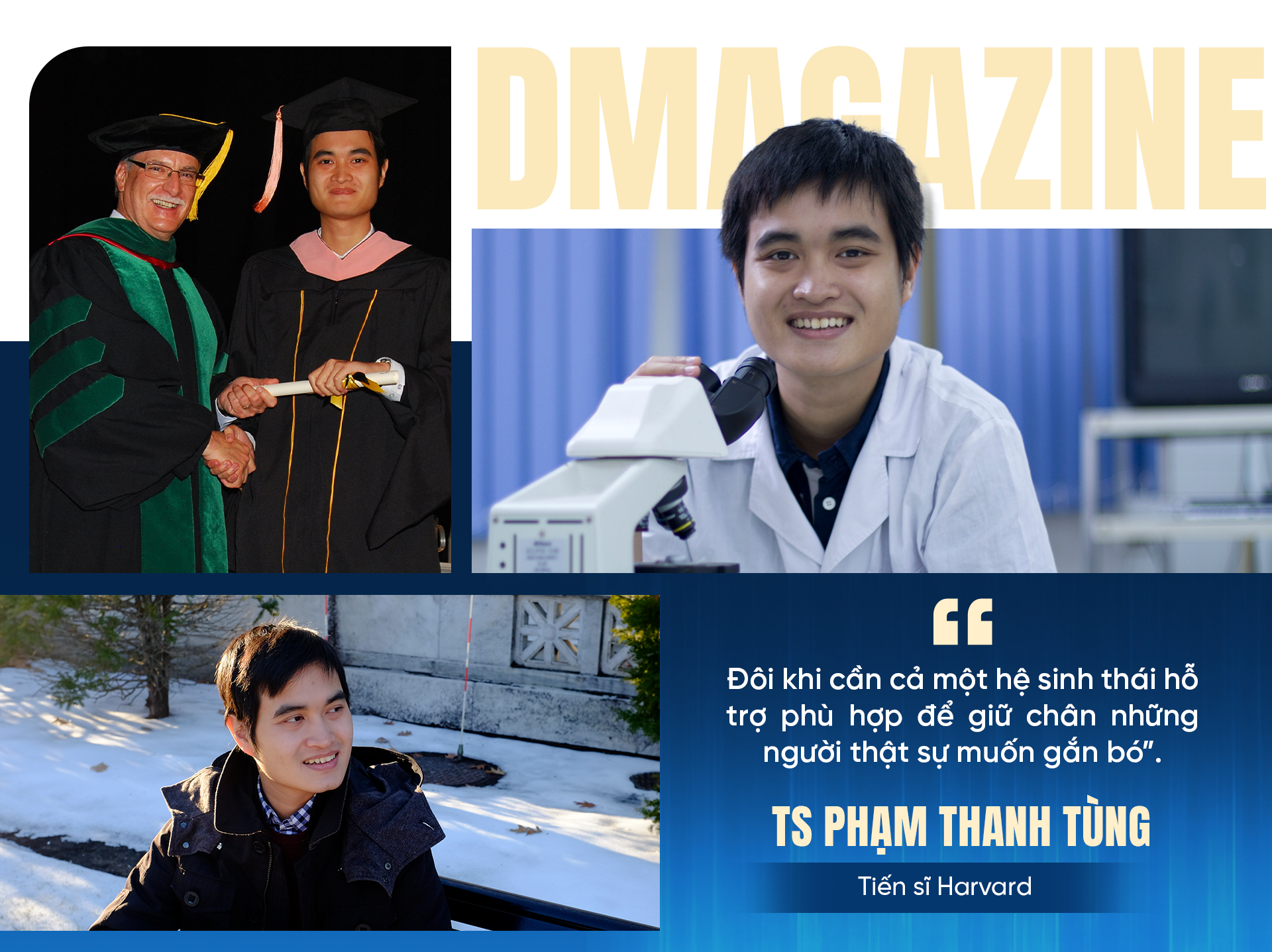

Many young people have gone out into the world – studying, working and making a name for themselves in the most elite environments – but then choose to return.
Not with the mindset of “putting aside the dream”, but with the belief that Vietnam today has enough potential to become a land where personal ideals can be realized. They return not only because of patriotism, but also because the country has changed, and is opening up opportunities no less than the world.
Trieu Vu Duy (26 years old, NYB.AI Technology Director), who studied Computer Science at Duke University (USA), chose to return to Vietnam amid the country's strong transformation in the technology field.
According to him, although there are many challenges, this is a "golden opportunity" for young people to contribute to shaping the future.
After many years of studying abroad, Duy realized that the advantage of young Vietnamese people is that they grasp technology very quickly and dare to think and dare to do.
“Completely different from countries like the US and Japan, they usually just play it safe. But our young Vietnamese people are different, very “fighting”, daring to change and adapt,” Duy shared.
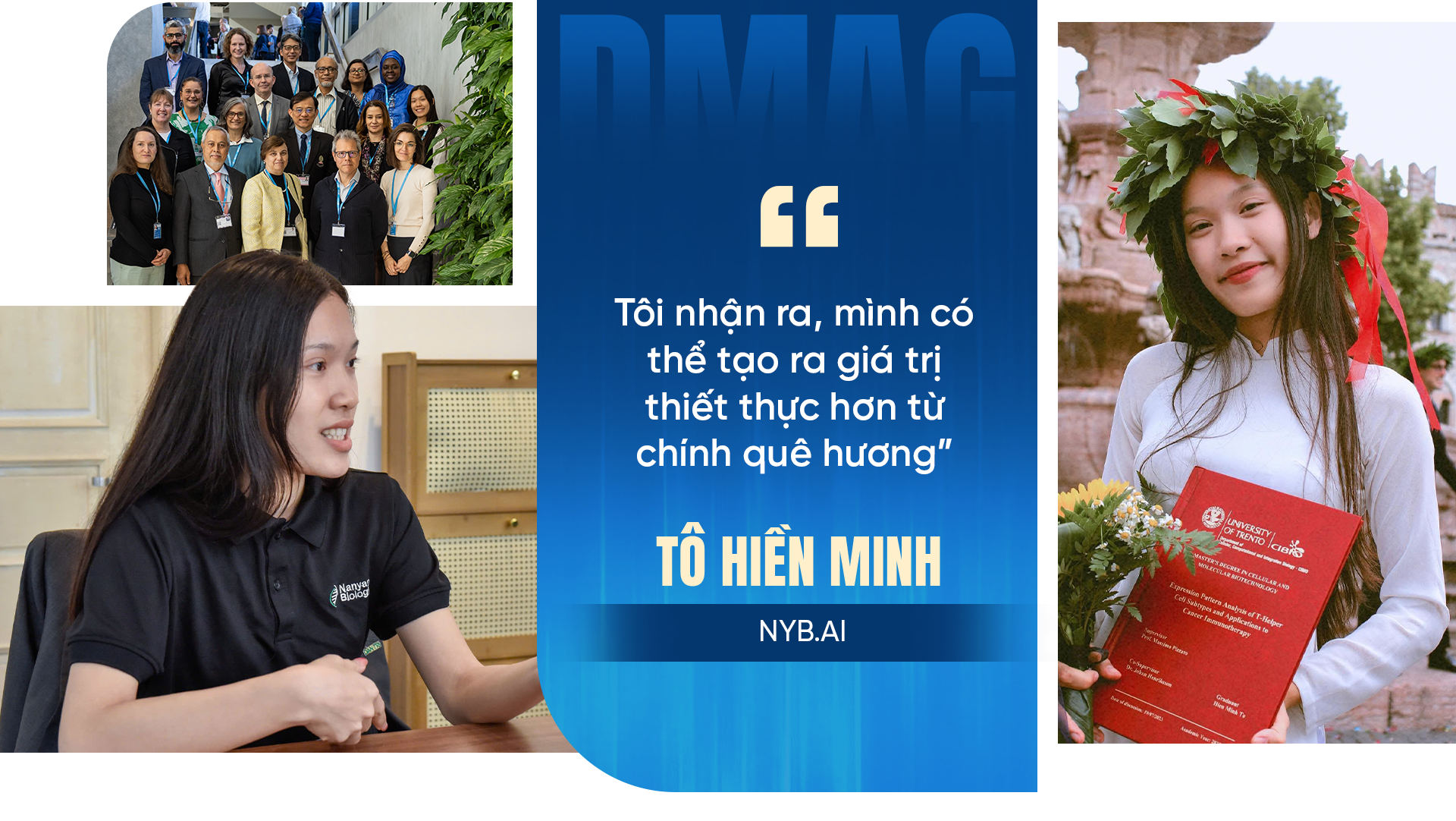
Thanks to remote working platforms, Duy's team still receives contracts from countries around the world, ensuring income that is not inferior to staying abroad.
“Along with the trend of startups and technology investment, those working in the industry today can still take on international projects, work remotely with a decent salary, while still contributing to their homeland,” Duy shared.
Duy's colleague, To Hien Minh (26 years old), who studied in Italy, Sweden and interned at WHO (Switzerland), also made a bold decision: returning to Vietnam after realizing that most of the research he participated in served developed economies.
In early 2024, Minh returned and joined NYB.AI, bringing his biotechnology expertise to the research team to apply AI to pharmaceuticals.
“I realized that I can create more practical value from my hometown,” Minh shared.

According to Dr. Nguyen Viet Huong, working conditions and benefits for scientists in Vietnam are improving significantly.
“The treatment of scientists in Vietnam is much better than before. In some domestic research and training facilities, the level of spending on scientific research is not even inferior to that in foreign countries,” said Dr. Huong.
Dr. Huong commented: “With the boost from Resolution 57, Vietnam is entering a period of strong investment in science and technology. This is a great opportunity to retain and attract young scientists to return home.”
Source: https://dantri.com.vn/khoa-hoc/bai-toan-du-kho-du-tam-nhan-tai-se-mang-tinh-hoa-5-chau-tro-ve-dat-nuoc-20250822180440055.htm


![[Photo] Prime Minister Pham Minh Chinh chairs meeting on railway projects](https://vphoto.vietnam.vn/thumb/1200x675/vietnam/resource/IMAGE/2025/10/23/1761206277171_dsc-9703-jpg.webp)


![[Photo] President Luong Cuong holds talks with South African President Matamela Cyril Ramaphosa](https://vphoto.vietnam.vn/thumb/1200x675/vietnam/resource/IMAGE/2025/10/23/1761221878741_ndo_br_1-8416-jpg.webp)
![[Photo] Prime Minister Pham Minh Chinh meets with South African President Matamela Cyril Ramaphosa](https://vphoto.vietnam.vn/thumb/1200x675/vietnam/resource/IMAGE/2025/10/23/1761226081024_dsc-9845-jpg.webp)

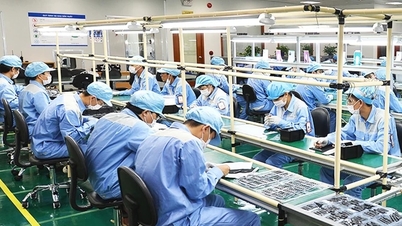

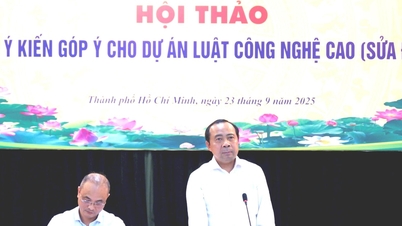
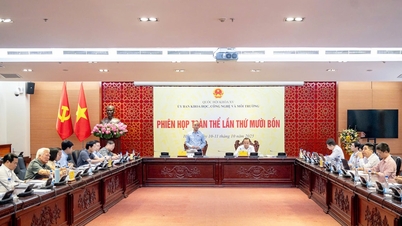
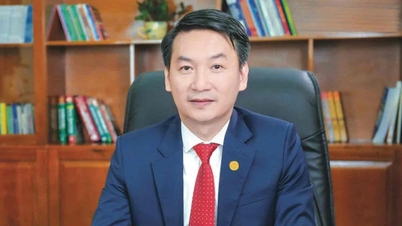



![[INFOGRAPHIC] vivo Pad5e, 12 inch 144Hz Tablet, Snapdragon 8s Gen 3 chip](https://vphoto.vietnam.vn/thumb/402x226/vietnam/resource/IMAGE/2025/10/23/1761226679125_thumb-vivo-pad5e-jpg.webp)


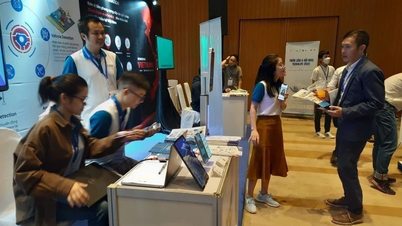

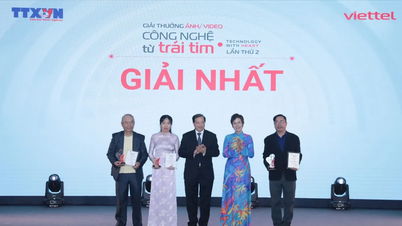








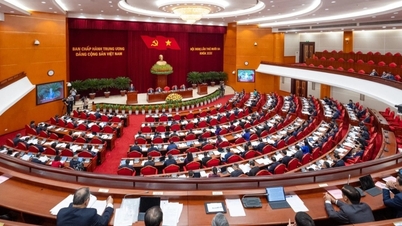
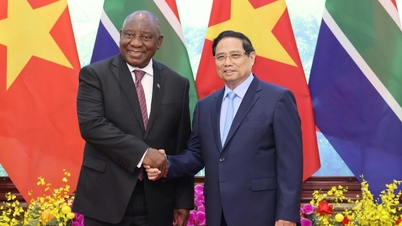
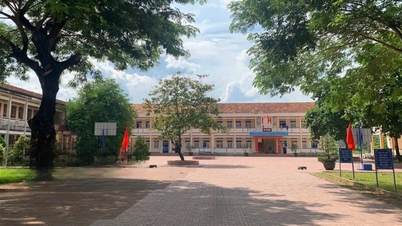
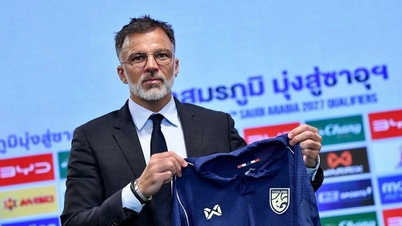
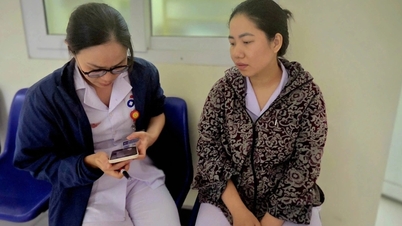




































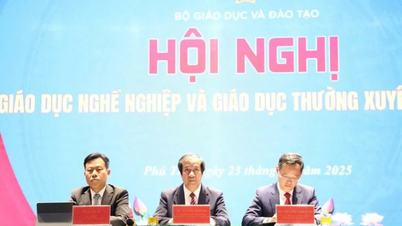

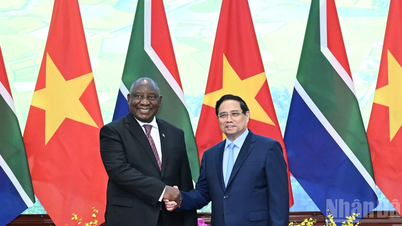
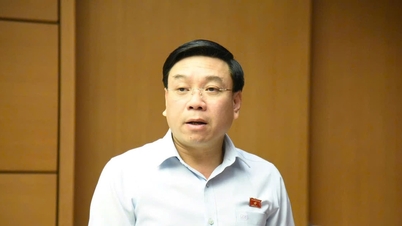





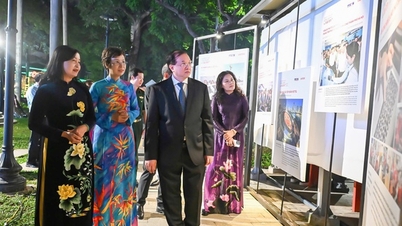



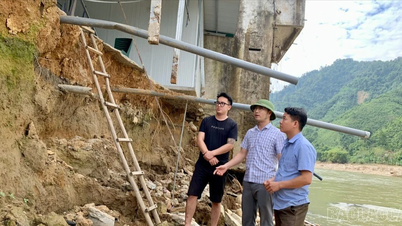

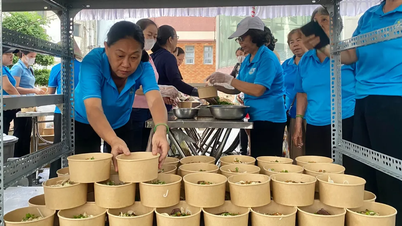


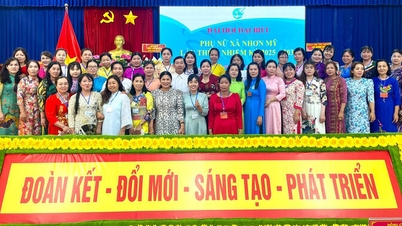














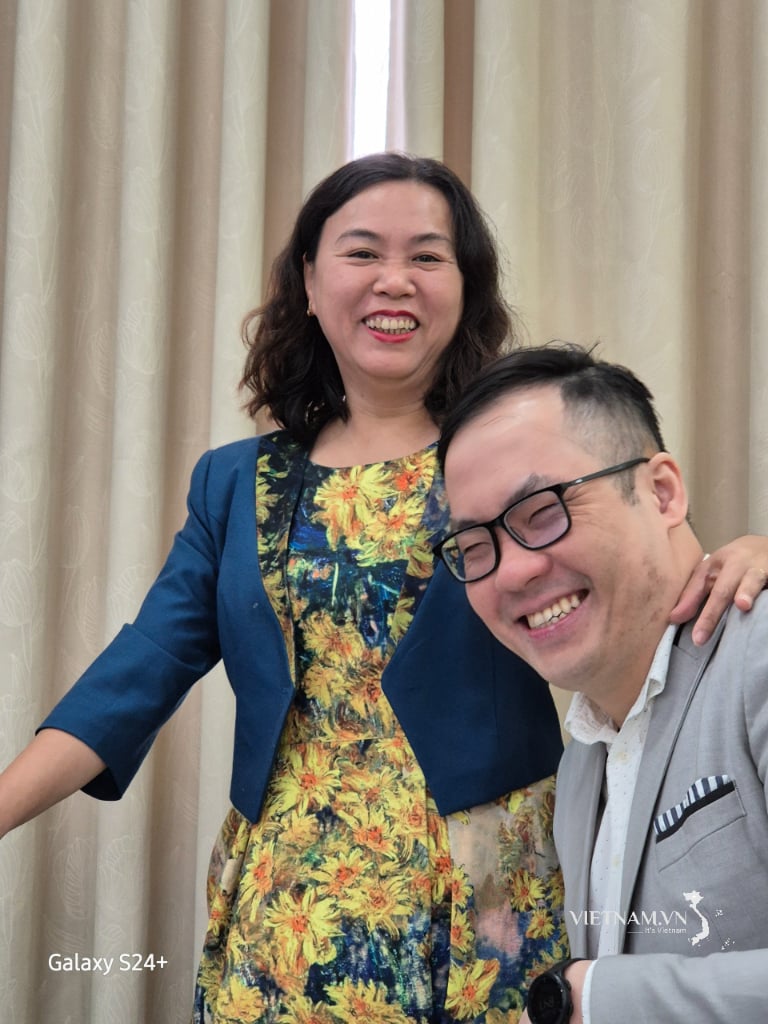



Comment (0)